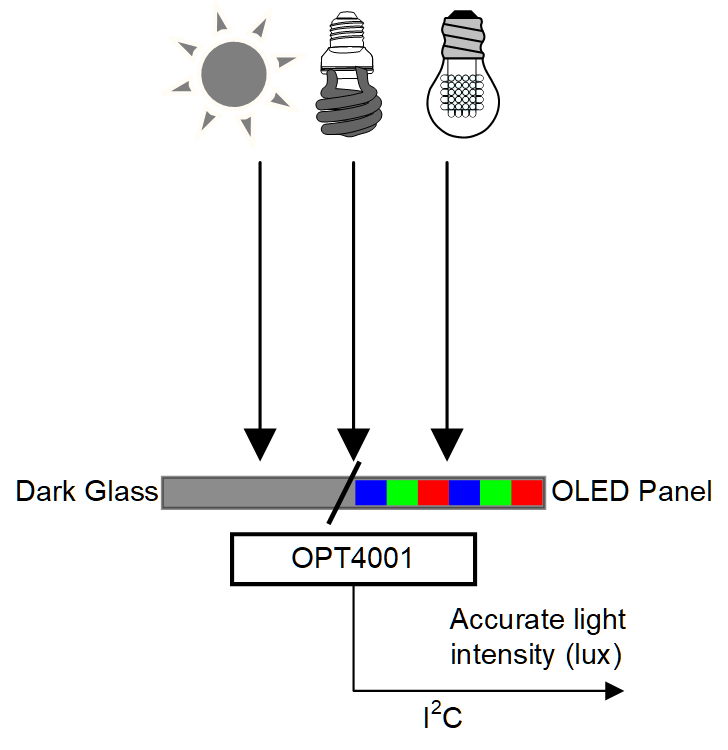ZHCSPI9A December 2021 – December 2022 OPT4001
PRODUCTION DATA
- 1 特性
- 2 应用
- 3 说明
- 4 Revision History
- 5 说明(续)
- 6 Pin Configuration and Functions
- 7 Specifications
- 8 Detailed Description
- 9 Application and Implementation
- 10Device and Documentation Support
- 11Mechanical, Packaging, and Orderable Information
3 说明
OPT4001 是一款用于测量可见光强度的光/数传感器(单芯片照度计)。该传感器的光谱响应与人眼的明视响应高度匹配。该器件上专门设计的滤波器可去除常见光源中的近红外成分,以便测量准确的光强度。OPT4001 的输出是半对数的,具有 9 个二进制对数满标度光范围,每个范围内具有高度线性响应,使得 PicoStar™ 型号的测量能力为 312.5μlux 至 83klux,而 SOT-5X3 型号的测量能力为 437.5μlux 至 117klux。此功能允许光传感器具有 28 位有效动态范围。通过内置自动满标度范围选择逻辑,用户无需根据照度级别选择适当的增益设置。
器件信息
| 器件型号 | 封装(1) | 封装尺寸(标称值) |
|---|---|---|
| OPT4001 | PicoStar™ (4) | 0.84mm x 1.05mm x 0.226mm |
| SOT-5X3 (8) | 1.9mm X 2.1mm X 0.6mm |
(1) 要了解所有可用封装,请参见数据表末尾的封装选项附录。
光谱响应:OPT4001 和人眼
 OPT4001 的典型应用图
OPT4001 的典型应用图